OEB 2019 Pre-Conference Workshops
FD1 Full-day Event
Date Wednesday, 27 Nov Time – Room: Köpenick I/II/III Price: 170.00 € Status: places available
(Re)Design Your Education!

Frank van den Ende
Educational designer and innovator, Gilde Opleidingen, The Netherlands
Frank van den Ende (1985) is an educational designer and innovator from the Netherlands. In his weekly podcast “The Active Class” and on his Instagramaccount (@theactiveclass) Frank shares hands on tips for teachers to turn consuming students into active knowledge creators. Based on his broad experience as a teacher, researcher and innovator Frank tries to inspire teachers to get the most out of their students inside and outside the classroom.
Links

Erik Frey
Creative Educational Designer, Fontys Hogescholen, The Netherlands
Erik Frey (1978) is a creative educational designer.
For me, creativity runs like a thread through education. In education I show that creativity can bring you new insights. I make students aware of his / her identity. And how they connect it with the context. After all, you do not learn alone. You learn together with other people by paying attention, listening and entering into dialogue. Within Fontys PULSED I combine creativity and design to (re) design education.
Links

Jochem Goedhals
Educational Rethinker, Fontys Hogescholen, The Netherlands
Educational Rethinker, because I think too many people don’t like their school time.
I’am a real Fire starter, it’s very natural for me to take the first action. In everything I start up, I believe in a positive outcome and ditto consequences. I need people around me who want to think and act with me so that the dots are put on the i’s. I need to be alert to tell people around me what’s going on in my brain and where I want to go. And of course I have to prioritise my actions.
Links
Discover
In this educational design Workshop, the emphasis will be on educational-design opportunities. Besides having an outcome that can directly be implemented in various educational environments, everything about the facilitators’ design approach will be imparted. Participants will receive all kinds of tools and methods that can also be used in future educational design processes in school.
During the Workshop, the attendees’ authentic educational context will be in the spotlight. The facilitators will use their design approach to stimulate participants to be as creative and innovative as possible by looking at their design problem from different perspectives. What do colleagues think of the design? And what about the students? Following structured, but viable steps, a realistic solution is worked out in which feedback is included from everybody involved in the implementation of the solution.
The facilitators are experienced educational designers from different educational levels who still work in education in their daily lives. During the design Workshop, they will include inspiring “wonder moments” based on their experiences. These wondermoments can be adjusted to the needs of the group.
Agenda
- Define design specifications and vision on learning
- Define learning process and learning arches
- Design content and learning lines and materials
- Wrap up and reflection
Outcomes
Making processes visible is a great way to find out what parts of education might need change.
During the design sessions, we will make use of the Groow toolkit: a toolkit designed by the facilitators to make both existing learning paths and new designs visible. The focus will be on the learning process, learning activities, checkpoints, and emotions the students will experience during their learning process. With Groow, we can turn complex problems into tangible solutions that will be involved in the implementation of the solution.
Deliverables:
- A shared vision on learning
- (Re)Design of your education
- Visualized learning processes
- Floormap with learning activities, body of knowledge and skills
- Design method and materials that can be used over and over again
Who will benefit most?
This Workshop is ideal for people connected to the learning practice of their organisation. Teachers, educational advisors, or team managers - anyone connected to the primary learning process will find the Workshop fascinating!
FD2 Full-day Event
Date Wednesday, 27 Nov Time – Room: Charlottenburg II Price: free of charge Status: fully booked
Education in Context: The Classroom of the Future, Today

Myron Cizdyn
President, eLearning Journeys, USA
Myron Cizdyn is Founder of the eLearning Journeys Initiative, which seeks to advance eLearning in Europe and beyond; energize institutional, educational and business thought leaders to support and promote eLearning; and project standards-based educational values throughout all segments of society. The goal of eLJ is to implement programs in instructional design to encourage entrepreneurial initiatives in tool and curriculum development; and to explore the benefits of standards-based learning in all segments.
eLearning Journeys holds a conference in Rzeszow once a year in the autumn, as well as continuing initiatives throughout Poland and beyond with its educational and industry partnerships.
He is also the President of The BLPS Group, which created the Gateway2Achieve learning platform, and has 27 years of experience in religious and educational publishing in the USA, Vatican, and Europe. He also serves on the Board of Directors of the SIIA's Educational Technology Industry Network.
Links
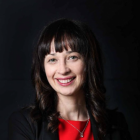
Eva Kilar-Magdziarz
University College Dublin, Ireland
Eva has been involved in education for the last 15 years, teaching students of all ages (YL, secondary school students and adults) across multiple sectors, being involved in teacher training (Erasmus, DELTA Local Tutor) and integration of educational technologies in Curriculum Design (LXD), Instructional Design and Digital project management.
She holds a TUD MSc degree in Applied eLearning, MA, and BA in TESOL and Translation and her published research deals with mobile learning and BYOD in Teaching English as a Second Language. Her current role as an educational technologist at the University College Dublin (UCD) focuses on choosing and implementing educational technologies, designing and developing learning materials, designing assessment and feedback strategies aiming at providing students with coherent, inclusive and interactive learning experiences. She also trains on the use of innovative approaches to teaching, learning and assessment with the use of technologies and takes an active part in communities of practice at UCD as well as outside of it.

Harald Melcher
Managing Partner, m2more GmbH, Germany
Harald Melcher is Co-Founder and Managing Partner of m2more GmbH, Berlin. Since 2012 m2more develops and implements strategies and concepts in the field of education and media – for companies and institutions and with a strong focus on digitization. Moreover Harald Melcher is Managing Director of m21 Bildungsmedien GmbH, a company offering innovative digital products for schools under the family brand Lerneo.
Harald is an experienced senior manager in the German education and media business. Before starting his own companies he took over responsibility as Managing Director of the privately run AKAD universities, the leading educational publisher Ernst Klett Verlag and, during the 90’s, in the founding and establishing of Cornelsen Software (subsidiary of Cornelsen publishers). He served as member of the board of Didacta Verband, the biggest German education industry association, and currently in two working committees of Bitkom, Germany’s IT industry association.
Links
Discover
The world of educational technology and publishing is extremely fragmented and becoming more so every day. In the past, the device was paper and publishers were few. Now, information is ubiquitous, platforms are myriad, and devices are seemingly infinite. In this incredibly diverse environment, determining and developing best practices in the classroom is our greatest challenge. Join facilitators Myron Cizdyn and Eva Kilar-Magdziarz as they lead an interactive discussion centered on best practices in education, and on how to use technology to enrich the lifelong learning experience. The group will discuss a series of the most important themes in educational practice, so everyone present will have the opportunity to examine how learning is affected by technology, how technology can be a tool and not a distraction, and how lifelong immersion can be created in learning inside and outside the classroom.
Our discussions will be centered around five themes:
- Learning Experience Design (LXD): how do we use Universal Design for Learning (UDL) to build curricula that are useful throughout the lifelong learning journey? How to ensure that the design of a learning path is coherent and meets the learning objectives of individuals?
- Building Learning Resources: how do all of us, teachers, administrators and even students, participate in making sense of information to increase knowledge by constructing and combining curricular resources? How to ensure the content curation is successful?
- Learning For All: how can we build inclusion and equity into our educational practice from the very start, using technology tools? How do we make our curricula and learning resources designed for all?
- Learning Everywhere: how can we build content that transcends the physical classroom space, and how can we adapt our spaces to improve learning? How do we design for microlearning on the go?
- Learning Differently: how can we use analytics, AI, and adaptive learning to improve the learning experience as well as learning outcomes?
Agenda
- Introductions
- Rotating Topic Discussion
- Coffee Break
- Rotating Topic Discussion
- Rotating Topic Discussion
- Lunch
- Rotating Topic Discussion
- Rotating Topic Discussion
- Coffee Break
- Rotating Topic Discussion
- Whole-Group Discussion: Conclusion and Next Steps
Outcomes
A clear idea of the greatest challenges posed by educational technology in classroom practice, and the start of a nascent but dedicated community of practice that is international, multidisciplinary, and comes from all segments of lifelong learning.
Who will benefit most?
Teachers, trainers and instructors from schools, universities and corporate L&D; Professors and Deans of university pedagogical faculties; and educational technology vendors already providing products to schools
FD3 Full-day Event
Date Wednesday, 27 Nov Time – Room: Bellevue Price: free of charge Status: places available
Speexx Exchange Berlin
Discover
The Speexx Exchange is a day-long side-event wherein managers and directors from the HR/L&D fields share and exchange best practices/lessons learned from learning programs at their respective organizations. It will include workshops.
This year’s focus will remain on digital transformation, personalized learning, microlearning and learning insights, but with more of a focus on AI, technology; underlining how we’re at a tipping point in history where tech, AI, big data and cloud is falling into place – tech finally being able to properly facilitate not just proper communication, but HR management, learning goals, and so on; how AI and machine learning have practical applications in HR and L&D.
Agenda
Transforming Formal Learning – Shifting to Value | 9.00 am - 11.30 am | Keynote & Best Practice Presentations
9.00 am – Registration & Breakfast - Bellevue Room | Hotel InterContinental Berlin
10.00 am – Kick-off & Reality Check
Laura Overton and the Speexx team
10.30 am – 10.50 am Keynote
Definition of Transformation – A Complete/ Radical/ Fundamental Change in Appearance or Character. Learning transformation is a must: Add value back to individuals, and cultural and experiential changes to make
Laura Overton | Independent Expert & International Speaker
10.50 am – 11.10 am
What Does a Transformed Leadership Development Experience Look like? How is impact increased in the future of leadership development?
Dr. Stefan Marose | VP of Corporate Partnerships & and Meike Gil Román | Corporate Partnerships | Headspring
11.10 am – 11.30 am
Learning Technologies to Scale Access to Learning, Strategic Transformation to Increase Human Engagement
Atish Gonsalves | Global Innovation Director | Humanitarian Leadership Academy
11.30 am – 11.50 am Coffee Break & Networking
Transforming the Experience | 11.50 am - 12.50 pm | Interactive Session & Best Practice Presentations
11.50 am – 12.10 am
The Role of AI in High Performing Learning Culture
Jane Daly | Chief Insights Officer | Towards Maturity
12.10 am – 12.30 pm
How is Natural Language Processing and AI Shifting the Experience?
Philippe Wacker | Executive Director | LT-Innovate
12.30 pm – 12.50 pm
Changing the Experiences Changes the Culture
Ramona Rösler | Teamlead Talent Management Solutions | Liebherr IT Services
12.50 pm – 1.50 pm Lunch Break
Transforming To Scale - Shifting Culture | 1.50 pm - 2.50 pm | Interactive Session & Best Practice Presentations
1.50 pm – 2.00 pm Reality Check #2
Data, Facts, Interactive Session
Laura Overton | Independent Expert & International Speaker
2.00 pm – 2.20 pm Best Practice
Learning Transformation to Scale Using Curation
Tom Turnbull | Co-Founder & VP, Partnerships and Legal Affairs | OpenSesame
2.20 pm – 2.40 pm Best Practice
Steps to Shaping Culture Change at Scale
Hannelore Kolb | Learning Program Manager | Hager Group
2.40 pm – 2.50 pm Interactive Session
2.50 pm – 3.10 pm Coffee Break & Networking
Transforming Yourself | 3.10 pm - 5.00 pm | Interactive Session & Best Practice Presentations
3.10 pm – 3.30 pm Insights & Knowledge Sharing
Changes to The CEFR 2020 Framework
Prof. Dr. Bernd Rüschoff | Professional Network Forum | Council of Europe
3.30 pm – 3.45 pm Best Practice
How is the L&D Role Changing?
Laura Overton | Independent Expert & International Speaker
3.45 pm – 4.45 pm Round Tables Workshop
Interactive Exercise – Changing You – What Can You Do Differently?
Laura Overton | Independent Expert & International Speaker
4.45 pm – Summary & Conclusions
5.00 pm – Drinks Reception
Outcomes
- Best practices, applicable use cases, lessons learned to apply to working environments
- Thoughts/ideas on how to best roll out learning programs, including microlearning/blended learning/personalized programs
- Great insights into how does AI benefits the L&D/HR managers directors – beyond helping learners, how they can use innovative tech (AI, ML, VR) reach overall business objectives with the budget an organization has, giving the best ROI on training/L&D budgets
Who will benefit most?
Experts, thought leaders and decision-makers from the global HR and L&D community
FD4 Full-day Event
Date Wednesday, 27 Nov Time – Room: King Price: 170.00 € Status: places available
Lights, Camera, Change: Leading Academic Innovation through Storytelling

Kyle Dickson
Director
Director of Mobile Learning Research, Abilene Christian University, USA
Kyle Dickson directs the AT&T Learning Studio in Abilene, Texas, enabling students and faculty to craft media messages for a global audience. Since 2005 he has worked at Abilene Christian University supporting faculty in podcasting, course blogging, and mobile learning. In 2011 he became director of the Learning Studio, part collaborative learning space, part media production sandbox. Presentations and workshops include EDUCAUSE, EDUCAUSE Learning Initiative, New Media Consortium, and the Handheld Learning Conference. He regularly teaches in British literature, drama, satire, film, and media production.
Links
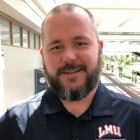
Matt Frank
Loyola Marymount University, USA
Matt spent over 10 years working in television and film as a cinematographer and editor before crossing into academia as a media educator, consultant, and creator.
As Associate Director of Classroom and Creative Services at Loyola Marymount University, Matt oversees a team responsible for all learning spaces, labs, audio-visual technology and the creation of multimedia-based academic resources that improve student learning and promote faculty outreach.
His interests include high quality video and audio production, emerging technologies, design, and gaming. Matt holds a B.A. in Communications with emphasis on Electronic Media from Wichita State University and previously worked as part of the Media Commons team at Penn State University and USC Annenberg School for Communication and Journalism.
Links
Discover
Leading strategic innovation in higher education means telling our story to audiences on and beyond our campuses. In the YouTube era, video is capable of much more than course capture. Video and visual storytelling are powerful tools to prototype, imagine, inform, and persuade as we seek to scale academic change. As academic leaders, we have often drawn on the skills of project manager, accountant, and experience designer, but we have not always thought about the essential skills of the storyteller. In the YouTube era, we have often turned to video as a platform for teaching and learning, supporting online and face-to-face courses with video lectures, guest speakers, and curated media content. However, visual storytelling is also a powerful tool for leading change on our own campuses and across a much wider audience.
Agenda
- Introductions
- Video as a Change Agent
- Building It
- Campus Context - Discussion
- Pre-Production
- Production
- Interview - Demo
- Post-Production
- Q&A
Outcomes
In this workshop, participants will move through the process of identifying a compelling story and considering the media tools at their disposal to share that story with key decision makers and peer institutions. During the first morning session, the focus will be on models that leverage the visual storytelling potential of video to prototype, imagine, inform, and persuade. The second morning session will then present proven workflows for putting together a production team and leading them through the process of finding the story, identifying compelling characters, and then capturing and refining strategic messages through interviews and b-roll. The day will end with a wrap-up discussion of how to extend the value of filmmaking and storytelling resources on campus once the investment in them is to be made.
Who will benefit most?
This Workshop will support leadership at all levels considering the power of media storytelling within their area or organization.
FD5 Full-day Event
Date Wednesday, 27 Nov Time – Room: Rook and Knight Price: 170.00 € Status: fully booked
How to Easily Create and Use Videos for Teaching and Learning

Anja Wipper
E-Learning Leacturer and Consultant, Technical University Berlin, Germany
Anja Wipper has been working as a trainer and consultant for e- and blended learning at Technische Universität Berlin since 2005. She studied work and instructional psychology and did further studies in university didactics, online learning and video production. As a member of the e-learning team, Anja gives courses and supports lecturers in the use of digital media to facilitate learning and motivate their students. Her specialities are: developing blended learning concepts, designing courses with learning management systems, creating learning videos and using online tools to enhance teaching and learning.
Discover
The deployment of audio and video offers various possibilities for enriching teaching. It can make learning more entertaining and help foster student engagement.
Appropriate audio and video can complement teaching while reducing the tedium of standard classroom sessions. Furthermore, careful scheduling of the activities can contribute to helping organise the learning process in a way that is more satisfying for both students and instructors.
This Workshop deals with the creation of short learning videos and their possible applications in teaching, with a particular focus on didactic factors.
Join the facilitators for an overview of the technical equipment required. Attendees will also have the opportunity to practice audio, video and screen recording for various teaching situations, as well as video editing and dissemination of the produced material.
Agenda
- Introduction
- Learning videos - Types, scenarios and production workflow
- Voice recording - microphones, tips and tricks
- Practice I - Screen recording and voice narration
- Video capturing - Technical equipment, settings and rules
- Practice II - Recording a talking head
- Timeline editing, annotations and effects in Camtasia®
- Practice III - Post-production - Video and sound editing
- Cinema time - Presenting the workshop results
Outcomes
- Overview of didactic usage scenarios for learning videos
- Knowledge of technical equipment for recording audio, screen and video
- Producing and implementing small videos in various teaching settings
Who will benefit most?
Educators with a keen interest in getting started with or improving their skills in the realm of video and audio for classroom use (including, but not limited to e-learning project managers, school teachers, educational technologists, academics, teachers in training, researchers, etc.)
FD6 Full-day Event
Date Wednesday, 27 Nov Time – Room: At the HPI School of Design Thinking in Potsdam Price: free of charge Status: places available
Post-disciplinary Learning: Rethinking Educational Systems @ HPI School of Design Thinking
Discover
This Design Thinking Workshop will address the future of education under the expert guidance of facilitators from HPI’s School of Design Thinking.
It aims to foster the exchange between participants from the education, corporations, civil society and government sectors in order to shape future learning scenarios across disciplines.
The Workshop will take place at the HPI School of Design Thinking in Potsdam, which is easy to reach from OEB’s venue by public transport in 40 minutes.
Agenda
- Welcome and introduction to HPI D-School
- Warm-Up
- Introduction to the design challenge
- Observe & Understand & Synthesis
- Ideation & Prototyping & Testing
- Reflection
Outcomes
New thinking and methods to shape future learning scenarios across disciplines.
Who will benefit most?
Anyone with an interest in the topic and method, regardless of their background, expertise, country, type of organisation or sector.
M1 Morning Event
Date Wednesday, 27 Nov Time – Room: Queen Price: 90.00 € Status: fully booked
Podcasts - The Power of the Spoken Word
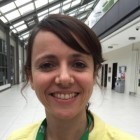
Blaneth Mc Sharry
Learning Technologist, CELT, NUI Galway, Ireland
Blaneth McSharry has worked as a Learning Technologist, Multimedia Developer and Trainer in higher education for the past several years, with experience also in graphical design and marketing. She has been the primary developer in the "All Aboard" project and the originator of their popular 'Metro Map' approach to developing digital skills and confidence. She has produced extensive multimedia materials, designed both for individual and group study, and has initiated and supported several digital badging implementations, establishing international contacts and relationships in this rapidly growing area. She has designed and facilitated workshops and training sessions, and integrated a range of technology solutions into educational contexts. Over the past three years, she has co-ordinated the Digital Champions initiative, a staff-student partnership on campus which aims to increase the digital confidence of staff and students.
Links
Discover
We often underestimate the impact of the spoken word. Interviews, conversations, and carefully crafted documentaries are just some of the formats popular in the educational application of digital audio. Podcasts are effectively on-demand radio shows, and we can learn much about what makes a compelling and effective programme from our experience of radio.
In this Workshop, participants will learn how to find and subscribe to podcasts; plan a podcast; explore the technologies to record and edit a podcast; and produce and publish their own short programme.
Agenda
- Overview and case studies
- Finding and subscribing to podcasts
- Planning a programme
- Exploring the technology
- Recording, editing, and publishing your own podcast
Outcomes
At the end of the Workshop, participants will have learned how to
- Search, download and subscribe to podcasts
- Connect and set up microphones, apps or other software
- Make a podcast, including editing different components together
Participants will be provided with a series of use cases of podcasts in higher education. They will also be provided with access to an openly licensed lesson on podcasts that covers all the topics of the Workshop and can used afterwards for reference.
Nearer to the date, registered participants will be provided with current tools and apps.
Who will benefit most?
Anyone interested in the topic, but the case studies are of particular interest to those working in Higher Education.
M2 Morning Event
Date Wednesday, 27 Nov Time – Room: Charlottenburg I Price: 90.00 € Status: places available
Value-Based L&D Is Not an Option But the Future

Vivian Heijnen
Co-Founder, 70:20:10 Institute, The Netherlands
Vivian is Co-Founder of the 70:20:10 Institute and co-owner of Tulser B.V.
Her strength is her strategic thinking combined with pragmatism and a knife-like focus on execution. She has consulted on a wide range of projects at every level for the implementation of 70:20:10 solutions. Her projects have covered managment development change, the implementation of electronic patient files and across other areas. Vivian’s strengths are in a total focus on the execution of the Performance Detective tasks, and of those of the Performance Tracker and the Performance Game Changer.
Links
Discover
In this Pre-Conference Workshop we will explore 5 L&D accelerators on the journey from learning focused to business focused L&D business models.
These accelerators show the way to move forward and demonstrate business impact and become an L&D profit center.
Over the past decades, L&D has been busy trying to demonstrate the value of learning. However, this is no longer seen as being sufficient nor relevant. Learning in organizations is intended to improve performance measurably and simply measuring the process without measuring the results will not provide insight into realized value. This is one reason the interest to demonstrate business impact is so high in L&D.
In our view, demonstrating impact is impossible if L&D fails to realign its service from a focus on the learning paradigm to a focus on the business paradigm. For this to happen, L&D needs to extend beyond the exclusive offering of formal learning solutions.
To redefine the future of L&D we need a deep, strategic change. This requires a reflection and deep thinking on the current versus desired L&D business models and business canvasses.
Value-based L&D is a new and innovative approach to diagnose the current versus the desired L&D Business Models and to provide guidance in the transition from learning value to business value.
We’ll explore the following key accelerators:
- Know what you are doing! (diagnosing your current L&D business model)
- Define your ambition! (Choose your desired Value-Based L&D business model)
- Involve key stakeholders!
- Design your Value-Based L&D roadmap!
- Enjoy the bumpy ride! (change will not happen overnight).
Agenda
- Introduction to the workshop and getting to know each other
- Challenges within L&D
- L&D Business Models: what are they including examples from practice.
- Activity accelerator 1: Know what you are doing!
- Accelator 2 and 3: Define your ambition and how do you involve your stakeholders?
- Accelerator 4: Design your Value-Based L&D roadmap and Enjoy the bumpy ride!
- After Action Review
Outcomes
We will take a close look at how L&D can move from an Order Taker business model to a Value Creator business model and you will get (insight into) 5 accelerators for your roadmap towards the Value-Creator Business Model.
Our Workshop will be interactive, with self-assessments, reflections, and activities with the Value-Based L&D Methodology and Canvas.
Who will benefit most?
L&D Managers and L&D Consultants
M3 Morning Event
Date Wednesday, 27 Nov Time – Room: Chess Price: 90.00 € Status: fully booked
Mixed Reality: Developing VR and AR Scenarios – An Introduction
Discover
VR and AR technologies will change learning in the future. Even without basic programming knowledge it is possible to use these new technologies in teaching. In this Workshop, participants will learn basic skills to create simple but effective VR and AR scenarios.
Agenda
- Introduction
- Developing a VR Scenario (Target Group and Menu Guidance)
- Developing an AR App – Image Targeting using Unity and Vuforia
- Discussion
Outcomes
The Workshop will provide you with an overview of a variety of online software, which you can use to build VR scenarios focusing on 360° video footage. It will develop a basic understanding of VR menu guidance as well.
The Second part of the Workshop revolves around how to develop AR Content using markers in Unity and Vuforia. Participants will use the free Vuforia Plugin and learn how to use image markers and display AR Content on Android Smartphones.
In addition, an overview about photogrammetric workflows including necessary hard- and software will be presented and discussed.
Who will benefit most?
Lecturers, scientific employees and anyone with an interest in learning how to develop VR and AR scenarios and in discussing the use of these technologies in Higher Education.
M4 Morning Event
Date Wednesday, 27 Nov Time – Room: Tegel Price: free of charge Status: fully booked
Moodle Workshop: Personalising the Learner Experience (Adaptive Learning)

Salvador Meneses
Moodle, USA
Salvador Meneses is an experienced Solutions Engineer at Moodle HQ. He is responsible for designing and implementing E-Learning solutions, and translating business requirements into technical solutions.
In his previous role at Carbon Black, Salvador used Moodle to develop a complex Role-Based learning pathway to support internal employee on-boarding, customer training and channel partner training.
During his spare time Salvador is a FAA Certified Aircraft Mechanic and is currently restoring a vintage 1950's airplane and enjoys spending time with his family. His 2 year old daughter keeps him busy.
Discover
This hands-on Workshop will explore ways to tailor your activities to the needs and levels of your learners.
Participants will:
- Explore examples of adaptive learning in existing courses
- Discover how to create simulations, decision-making exercises and personalised revision sessions with the Moodle Lesson activity
- Investigate how to control display of course materials using Restrict access and Activity completion features
Agenda
- Introduction to Moodle
- Explore examples of adaptive learning in existing courses
- Discover how to create simulations, decision-making exercises and personalised revision sessions with the Moodle Lesson activity
- Investigate how to control display of course materials using Restrict access and Activity completion features
- Plenary, discussions - other considerations
Outcomes
By the end of the session, participants will have a good understanding of how to set out their courses and activities to ensure their learners have access to the content most suited to them.
Who will benefit most?
Anyone interested in the topic
M5 Morning Event
Date Wednesday, 27 Nov Time – Room: Charlottenburg III Price: 90.00 € Status: places available
Creating Education 4.0

Gilly Salmon
Academic Director, Professor, Learning Innovator, Leading Thinker in Digital and Blended learning and Academic Director at OES, UK
Professor Gilly Salmon, PhD, PFHEA, NTF. is CEO & Principal Consultant. She has 30 years’ experience at senior levels, in universities in the UK and Australia. She has initiated, strategized, implemented & completed significant institutional change. Her experience & background includes the UK Open University as well as Associate Dean (Online) & Pro Vice-Chancellor roles in research-intensive and in vocational institutions.
She recently spent two years as academic director at an Online Programme Management company. Gilly Salmon is now an Adjunct Professor at Swinburne University of Technology in Melbourne, Australia, & Visiting Professor at Edge Hill University, close to Liverpool, UK.
See her web site www.gillysalmon.com
Links

Ulf-Daniel Ehlers
Professor for Educational Management and Lifelong Learning, Baden-Wurttemberg Cooperative State University, Germany
Ulf is a learning innovation expert, founder of mindful-leaders.net, serial entrepreneur, and Professor for Educational Management and Lifelong Learning at the Baden-Wurttemberg Cooperative State University in Karlsruhe in 2011.
From 2011-2017 he held the position of Vicepresident at the same university and has been responsible for Quality and Academic Affairs. He held positions as Associate Professor of University Duisburg-Essen (Germany), Professor for Technology Enhanced Learning of University Augsburg (Germany) and Associate Professor of the Graduate School for Management and Technology of the University of Maryland University College (USA).
Ulf has delivered keynotes and been speaking to audiences in more than 45 countries. He is author of more than 10 books and 150 scholarly articles with over 3000 academic citations. Ulf is a trained coach, facilitator and expert for mindful communication, and holds degrees in English Language, Social Sciences and Education Sciences from the University of Bielefeld, where he finished his Ph.D. with honors in the field of Technology Enhanced Learning in 2003. He was awarded his habilitation in 2008 from the University of Duisburg-Essen. His writings on Quality in education are internationally awarded.
Links
Discover
This will be an interactive Workshop revolving around future knowledge and skills for the 4th Industrial Revolution and future curriculum design.
Agenda
- Introducing the 4th Industrial Revolution - in our time
- Future knowledge & skills for the 4th Industrial Revolution
- Imagining and visioning education 4.0
- Threshold concepts & authentic assessment
- Future curriculum design & storyboarding
- Pathways to achieving, preferred and viable futures for Education 4.0
- Presentations and planning
Outcomes
- New insights into future requirements of graduates
- Foresight for all disciplines and professions
- Ways of redesigning curricula for all disciplines
Who will benefit most?
- Further and higher education and corporate learning
- Suitable for senior leaders, faculty deans, professors in any disciplines, administrators with influence, directors of digital learning and/or innovative education
M6 Morning Event
Date Wednesday, 27 Nov Time – Room: Schinkel III Price: free of charge Status: fully booked
The Role of Open Credentials for Virtual Mobility of Students and Teachers - Enhancing Internationalisation in the University of the Future

Ilona Buchem
Professor for Communication and Media Sciences, Beuth University of Applied Sciences, Germany
Ilona Buchem (PhD) is Professor for Media and Communication at Beuth University of Applied Sciences in Berlin. She graduated with a Master’s degree in Applied Linguistics at the University of Warsaw (Poland), Concordia University (WI, USA) and University Duisburg-Essen (Germany).
She studied Educational Sciences at Humboldt University in Berlin and obtained her PhD degree in Business Education in 2009. Her research and teaching focus on the intersections of digital media and society, with special focus on emerging technologies such as social, mobile, wearable and smart technologies. Her research interests include Digital Collaboration, Digital Diversity, Digital Learning and Digital Leadership.
Ilona Buchem has led a number of R&D projects dedicated to emerging digital media for learning and digital strategies in organisations. She is the Chair of the Special Interest Group on Wearable Technology Enhanced Learning at the European Association of Technology Enhanced Learning (EATEL), the founder of the Europortfolio German Chapter and a member of several organisations related to distance education and technology-enhanced learning, including the Association of Media in Science (GMW) and the European Distance Education Network (EDEN).
She has initiated and has been actively involved in a number of national and international projects both as a project coordinator and a researcher, including Open Virtial Mobility (Erasmus+), Open Badge Network (Erasmus+), BewARe (BMBF), Digital Future (Stifterverband), fMOOC (BMBF), BeuthBonus (BMBF, BMAS, BA, ESF), Credit Points (BMBF, BMAS, BA), Wikipedia Diversity (Wikimedia), Mediencommunity 2.0, iCollaborate and Future Social Learning Networks (FSLN).
Links
Discover
The aims of this workshop are:
- To share current practice on open credentials in the context of virtual mobility in higher education informed by current research in Europe
- To inspire design of learning activities with open credentials for virtual mobility and
- To initiate a joint discussion about the role of open credentials for internationalisation in the university of the future
This workshop is dedicated to introducing and extending the concept and tools for digital recognition of virtual mobility skills with open credentials developed in the Erasmus+ Open Virtual Mobility (OpenVM) project (2017-2020, URL: https://www.openvirtualmobility.eu/).
Open credentials in the OpenVM project aim to recognise virtual mobility skills of students and educators in higher education. OpenVM credentials are an integral part of the 8 OpenVM MOOCs and are directly linked to the skill set and e-assessment of the user’s own skills at three levels: foundations, intermediate, advanced.
The Workshop will start with the introduction of eight of the types of open credentials developed in the project, which are based on the results from the project’s Group Concept Mapping research. OpenVM credentials have been implemented in the OpenVM Learning Hub, which is integrated with the badging platform Bestr.
Participants will learn about the process of research, design, implementation and testing of open credentials applied in the OpenVM Learning Hub.
After the introduction, attendees will engage in a set of activities that will allow the hands-on exploration of open credentials in the Learning Hub. The Learning Hub is a gamified learning environment developed in OpenVM project. It includes MOOCs, OERs, E-Assessment, and Open Credentials for the support of attainment, assessment, and recognition of skills needed for and resulting from a successful participation in virtual mobility.
Following the exploration part, you will engage in activities aimed at designing your own didactic/learning designs for the integration of open credentials into teaching/training practices.
The aim of the Workshop is to involve practitioners, researchers and experts in the discussion about the integration of open credentials in educational contexts and the role of open credentials for internationalisation in higher education.
Agenda
The Workshop methodology will be based on the Design Thinking approach and will include the following six steps:
- Step 1 - Introduction of participants and own experiences with virtual mobility and/or open credentials.
- Step 2 - Introduction of the OpenVM project, including research, design, implementation and testing of open credentials with virtual contributions from involved researchers and developers.
- Step 3 - Hands-on exploration of the OpenVM Learning Hub with the integrated badging platform Bestr for issuing open credentials.
- Step 4 - Introduction to the learning design activity, including Design Thinking methodology.
- Step 5 - Design thinking activity aiming at the design of didactic/learning concepts/activities for the integration of open credentials into teaching/training.
- Step 6 - Presentation of the results from the design thinking activity and discussion about the role of open credentials for internationalisation in the university of the future.
Outcomes
The key take-aways from the workshop will include:
- Introduction and access to the OpenVM Learning Hub with integrated badging platform Bestr
- Hands-on exploration of open credentials in the OpenVM Learning Hub
- Design of didactic/learning concepts with integrated open credentials
- Practical application of Design Thinking in a short format based on the methodology applied in d-school at the Hasso Plattner Institute in Potsdam
- Insights from a joint discussion about the the role of open credentials in internationalisation in the university of the future
Who will benefit most?
- Educators/teachers who plan virtual mobility / virtual exchanges
- Academic staff supporting virtual mobility / virtual exchanges
- Researchers doing research on internationalisation and digitalisation
- Open credentials providers
A1 Afternoon Event
Date Wednesday, 27 Nov Time – Room: Bishop Price: 90.00 € Status: places available
Are You Talking to Me? Learn How to Design a Chatbot

Joitske Hulsebosch
Advisor, Ennuonline, The Netherlands
I am an independent consultant working on learning, change & technologies. I am passionate about social learning. My themes are blended learning, knowmads, tools and tech and social learning. My workshop will be about chatbots. Chatbots I hear you say... and social learning? Sure, why not learn together with a bot?
My websites are: http://www.ennuonline.com (Dutch) and http://joitskehulsebosch.blogspot.com (blog)
Specialties: design of online and blended learning, learning in communities, knowmads and chatbots
Links

Steven van Luipen
Consultant, Van Luipen Advies, The Netherlands
Steven van Luipen is an independent consultant. He facilitates professional learning networks, learning activities and programmes, mostly technology supported, online or blended.
Steven works primarily in the public domain. His approach is practice oriented. He is an expert in sharing knowledge within and across organisations about present-day themes, such as the increasing importance of technology and data.
His aim is to help his customers get a better understanding of shared issues, agree on lasting solutions and ultimately improve their performance.
Links

Natasja van Schaik
Lecturer/Researcher, Hogeschool van Amsterdam, The Netherlands
What if students would discuss their study choices with a bot? That kind of question keeps Natasja going. Starting experiments, design, fail, fail harder and hopefully book interesting results.She is a lecturer at the University of Applied Sciences of Amsterdam and designs speculative solutions with her students, using emergent technologies. She works within several disciplines, for example foster care, education, human resource management/coaching.
So let’s start thinking speculatively and design a conversational interface in your daily practice.
Links
Discover
Chatbots are a new phenomenon in L&D. Many professionals in higher education and L&D don’t know what they are or what they can achieve, and hence do not think about the design of the bot. Or if they have an idea to design a bot, they may not know the steps to take.
In this Workshop, participants will get to know the world of bots, what it takes to design one (with its own personality), and how to work out a conversation flow. Besides learning about bots, they will also work on the design of a bot. In small groups, they will develop a first prototype of a bot.
Agenda
- Introduction to the world of bots
- Design a bot
- The conversation flow
- Designing a conversation flow for your bot
- Introduction to 3 chatbot platforms
- Building a prototype
Outcomes
- Knowledge of existing bots and potential for L&D
- A better idea of the various design steps in developing a chatbot
- Experience of the design of a conversation flow
- Knowledge of one chatbot platform
- A prototype of a bot
Who will benefit most?
The Workshop is interesting for people from L&D and education alike, as well as both developers and non-developers.
A2 Afternoon Event
Date Wednesday, 27 Nov Time – Room: Charlottenburg I Price: 90.00 € Status: places available
Exploring Futures Methods and Practices

Bryan Alexander
Founder and Principal, Futurist, researcher, writer and teacher at Georgetown University / Bryan Alexander Consulting, USA
Bryan Alexander is an internationally known futurist, researcher, writer, speaker, consultant, and teacher, working in the field of how technology transforms education.
He completed his English language and literature PhD at the University of Michigan in 1997, with a dissertation on doppelgangers in Romantic-era fiction and poetry.
Then Bryan taught literature, writing, multimedia, and information technology studies at Centenary College of Louisiana. There he also pioneered multi-campus interdisciplinary classes, while organizing an information literacy initiative.
From 2002 to 2014 Bryan worked with the National Institute for Technology in Liberal Education (NITLE), a non-profit working to help small colleges and universities best integrate digital technologies. With NITLE he held several roles, including co-director of a regional education and technology center, director of emerging technologies, and senior fellow. Over those years Bryan helped develop and support the nonprofit, grew peer networks, consulted, and conducted a sustained research agenda.
In 2013 Bryan launched a business, Bryan Alexander Consulting, LLC. Through BAC he consults throughout higher education in the United States and abroad. Bryan also speaks widely and publishes frequently, with articles appearing in venues including The Atlantic Monthly, Inside Higher Ed. He has been interviewed by and featured in the Washington Post, MSNBC, US News and World Report, National Public Radio, the Chronicle of Higher Education, the National Association of College and University Business Officers, Pew Research, Campus Technology, and the Connected Learning Alliance.
He recently finished Academia Next: The Futures of Higher Education for Johns Hopkins University Press (forthcoming fall 2019). His two most recent books are Gearing Up For Learning Beyond K-12 and The New Digital Storytelling (second edition) .
Links
Discover
This Workshop introduces participants to several leading forecasting methods. They include horizon scanning, trends analysis, and scenario creation. The facilitator will demonstrate each method with examples from within academia as well as from the larger world.
The session is very interactive, combining presentation, discussion, and hands-on work.
Participants will conclude the Workshop with greater understanding of futures thinking. They will be able to develop forecasting capacity within their organizations.
Agenda
- Introductions
- Futures and forecasting - a presentation on the field, focused on the present state of the art.
- Method - Environmental scanning is examined through examples, followed by an exercise using it.
- Method - Trends analysis is examined through examples, followed by an exercise using it that builds on findings from the environmental scanning section.
- Method - Scenario creation. Role-playing several scenarios for the future of education are followed by the creation of scenarios based on the trends previously identified.
- Implementation - How can these methods be applied in our respective organisations?
Outcomes
Participants will learn about cutting-edge forecasting methods. They will understand the limits and affordances of each. They will also be able to apply these methods with their organizations, developing futures capacity.
Who will benefit most?
Anyone interested in the topic.
A3 Afternoon Event
Date Wednesday, 27 Nov Time – Room: Tiergarten Price: 90.00 € Status: places available
The Intrinsic Learning Power behind Real Competence Development: 'AAA-Learning'
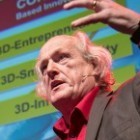
Jef Staes
Innovation Architect, Red Monkey, Belgium
Jef Staes (Belgium, 1956) is an authority and thought leader on learning processes, innovation and culture change. With decennia of professional experience, he currently assists CEO’s and managers to find a comprehensive answer to the changing dynamics of today’s market. Jef does not shy away from confrontation! With a vast range of new insights and metaphors, he illustrates why managers and policymakers often reach the wrong decisions and even obstruct change processes.
Jef answers a crucial question: “Why don’t organisations learn and innovate fast enough?”. Based on his career as a software designer (GTE ATEA in Belgium & USA), training Manager and Corporate Learning Officer (Siemens, Belgium), he not only awakens people, but also presents them with a unique concept to guide them through the necessary changes.
He is a passionate and inspirational keynote speaker and author. His story is a guaranteed eye-opener and his thoughts on the future of business and education inspire many. With striking metaphors, he tackles the most fundamental issues organisations struggle with.
Links
Discover
In the education and the workplace learning/training sectors, the words “passion” and “talents” are often used. However, are the consequences of using these two words taken into account? In order to embrace the power of passion and talents of learners of all ages, learning must be re-discovered. And there is a need to start by disrupting how training and education programmes are developed. How can people be developed in the groove with who they are?
The facilitator will be focusing on (the consequences of) disruption in learning and working, and of course on passion, talent, skills, and competence development during the Workshop.
The discussions will be based on a concept developed by Jef while he worked as Training Manager and Corporate Learning Officer at Siemens: AAA-Learning. This concept disrupts how training and development can and should be organised. It also disrupts the role of teachers, trainers and consultants in the process. As can be imagined, it faced a lot of resistance … and dealing with resistance and implementation is something that will be addressed as well.
Agenda
- 3d-smarting, the fusion between learning and working
- What is real competence development?
- Using AAA-Learning to boost real competence development
- The impact of AAA-Learning on training and education
- The resistance to AAA-Learning based on real experience
- The impact of AAA-Learning on using “digital”
- The impact of AAA-Learning on personal development
- Reinventing validation of passionate and talented people
Outcomes
Participants will go home with a completely different view on how to develop and organise learning and education programmes.
Who will benefit most?
Anyone and everyone interested in evolution in working and learning.
A4 Afternoon Event
Date Wednesday, 27 Nov Time – Room: Tegel Price: 90.00 € Status: fully booked
Create Your Own Interactive Learning Story in Virtual Reality

Willi Bernhard
Professor, Swiss Distance University of Applied Sciences, Switzerland
Willi Bernhard is a professor at the Swiss Distance University of Applied Sciences located in Brig.
He works as an engineer, lecturer, researcher, consultant and author in the fields of Digital-Collaboration, Computer Simulation, Serious Games, Digital Learning and Creativity Training.
He received several innovation awards in the field of simulation technology, is a member of the Board of Swiss Engineering STV „Section Basel“ and head of the Special Interest Group "Digital Collaboration" at the Swiss E-Learning Community of Higher Education Institutions.
Links

Bodo Möslein-Tröppner
Professor, Duale Hochschule Baden-Württemberg, Ravensburg, Germany
Prof. Dr. Möslein-Tröppner has many years of experience in industry and trade. His main focus in research and teaching is in the areas of supply chain management, process management and market research as well as new learning methods. He is Professor at DHBW Ravensburg.
Links
Discover
In this Workshop, participants will learn how an interactive story works; how to create it with the help of story blocks; and how to integrate learning content with a didactic model and implement it in a virtual reality environment.
A digital gamebook is an interactive text adventure in which all elements of the game environment are created through text components, similar to a book.
The reader takes the role of the player, interacting with and influencing the story line. From time to time, the player has to solve tasks and take action in order to move forward. In this way, the players/learners influence the course of the story. Their direct, situational interactions require personal decisions, and as the digital game responds immediately, it takes them on a personalised learning path.
Based on a solid didactic model, gamebooks are easy to create and can be played via html browser on any device. The principle of digital gamebooks can be used visually and with multimedia, too. Instead of reading a story, players find a (learning) experience in a virtual space as an interactive VR learning experience with spoken texts and in 3D / 360 degrees. VR learning content is motivational, and even interactive VR stories are surprisingly easy to create by making 3D/360-degree camera pictures (and with the help of a software for virtual tours).
Agenda
- Introduction to the topic of interactive stories and digital gamebooks with:
- What is a gamebook and how does it work?
- Demonstration and try out of digital gamebooks
- How to create an interactive story with knowledge elements for learning
- Expanding gamebooks into 3D space
- Working out your own learning story in group work with:
- Introduction to a 3D learning room using a template
- Explanation of the tasks and procedures
- Creation of your own story
- Implementation of your own story into the 3D learning room with:
- Explanation and demo of the further procedure
- Transforming text into speech elements
- Completion, upload and test of your own story in the 3D learning room using MINI-VR Glasses
- Exchange of experiences among the participants
Outcomes
Participants will experience how they can integrate learning content into an interactive story and implement it in a 3D virtual reality environment.
They will learn how an interactive story works, how to create it with the help of story blocks, and how to integrate learning content with a didactic model and implement it in a virtual reality environment.
In the Workshop, participants will work in groups on an existing example, which can be adapted and played through in VR/3D. Please make sure to bring your smartphone, which will allow you to perform the experience on the Mini-VR glasses that are provided.
Who will benefit most?
Teachers at universities who are interested in digital forms of teaching and learning. Also for people from companies who are interested in interactive storytelling and VR.
A5 Afternoon Event
Date Wednesday, 27 Nov Time – Room: Lincke Price: free of charge Status: fully booked
DistancE-Learning in Europe - Exchange of Experience and Knowledge Sharing
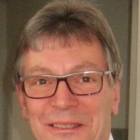
John Trasler
President, EADL, UK
John Trasler is the founder of Elearn( UK 2003) a blended learning provider and is currently President of the European Association of Distance Learning (EADL). EADL is a not for profit organisation dedicated to promoting the quality of distance education across Europe.
John has worked in the education and training field for over thirty years both as a practitioner and consultant and with Managing Director roles for both Pearson and News Corporation companies and shares a passion for learning and organisation development.
As an innovator and educator John is keen to ensure new developments in education technology offer genuine advancements in pedagogy that will enhance both personal and business education. EADL offers a forum for member companies and their employees in all European countries to share and develop their knowedge and understanding. We look forward to meeting you in Berlin.
Links

Jens Greefe
Chairman of EADL, Member of the Board, Director of Studies, European Association for Distance Learning (EADL), Bundesverband der Fernstudienanbieter, Germany
Jens Greefe holds a diploma in Economics and is member of the board of the Forum Distance Learning, the german association for distance learning.
Since 2014 he is also Chairman of the Research & Developing Committee of EADL.
Jens Greefe is the Director of Studies at the ILS in Hamburg, Germanys biggest distance learning provider, educating app. 70.000 students in more than 300 distance courses. He is responsible for the development and the organization of the course programs and for the quality management of the ILS.
Links
https://www.fernstudienanbieter.de/http://www.eadl.orghttps://www.linkedin.com/in/jens-greefe…

Steve Wheeler
Learning Innovations Consultant, UK
Steve Wheeler is a Learning Innovations Consultant and former Associate Professor of Learning Technologies at the Plymouth Institute of Education where he chaired the Learning Futures group and led the Computing and Science education teams.
He continues to research into technology supported learning and distance education, with particular emphasis on the pedagogy underlying the use of social media and Web 2.0 technologies, and also has research interests in mobile learning and cybercultures.
He has given keynotes to audiences in more than 35 countries and is author of over 150 scholarly articles, with more than 7000 academic citations.
An active and prolific edublogger, his blog Learning with ‘e’s is a regular online commentary on the social and cultural impact of disruptive technologies, and the application of digital media in education, learning and development. In the last few years it has attracted in excess of 8 million unique visitors.
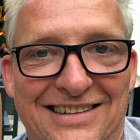
Paul Hearn
Knowledge and Change Management, European Commission, Belgium
Paul is a Senior Expert in Knowledge Management at the EU Joint Research Centre (JRC), the European Commission's in-house science service. In recent years, the organisation has undertaken a major strategic shift towards a flatter, more collaborative working style focused on delivering scientific knowledge and learning - in the form it is needed and at the time it is needed - to European policy makers. A 20 year veteran of the European institutions, Paul is known as an internal innovator, and has several internal innovation prizes in his collection. Recently, Paul has turned his attention to bringing together the disparate classroom-based, specialised learning activities which take place across the EU institutions into a coherent, strategic and modern resource for the stakeholders of the institutions and which will be delivered through a new Commission portal known as the EU Academy (online mid next year). Paul's work in knowledge management is recognised globally and he has been a frequent conference speaker on this subject, and a champion of people- and community-centred approaches to organising and sharing knowledge and learning in large organisations. In former instantiations of his professional life he has worked on advanced multidisciplinary technology projects alongside philosophers, computer scientists, neuroscientists, physicists, biologists, medical practitioners and others, including a number of Nobel prize winning scientists. Before joining the Commission, Paul was an entrepreneur and helped to launch a number of start-up companies, some of which went on to greater things in what was then the nascent computing and internet sector.
Paul has a multidisciplinary academic background, with a degree in Modern Languages and Linguistics, and postgraduate Master's Degrees in Cognitive Science, and Economic and Business Administration. Educated in the UK and Spain, he is a speaker of four European languages, which he thought was enough until his daughter grew up to casually and almost effortlessly beat him (she is currently learning 6 languages).
Links
Discover
With this workshop, we intend to create an opportunity for networking and knowledge sharing for all participants who offer programmes for lifelong learning and vocational education using distance-learning methods.
The intention is to establish an international forum, enabling the participants to develop a position regarding the variety of technological developments for digital teaching and learning programmes in the field of distance learning.
Agenda
- Welcome - Jens Greefe, EADL and Forum DistancE-Learning
- Introduction and moderation - John Trasler, EADL
- Distance Learning in Europe - Paul Hearn, European Commission
- Blockchain Technology and Certificates in Education
- The Future of Distance Learning - Steve Wheeler
Outcomes
- Gaining information about the distance education markets in Europe
- Understanding the relevance of blockchain technology in education
- Receiving knowledge of the impact of technology on distance learning programs
- Expanding networks and supporting the sharing of knowledge in Distance Education
- Get together in an international framework
Who will benefit most?
Distance Education experts who want to expand their network and share their knowledge with others and anyone who is interested in distance learning methods as well. The workshop is especially for those who work in the adult education business.
A6 Afternoon Event
Date Wednesday, 27 Nov Time – Room: Schöneberg Price: 90.00 € Status: places available
Serious Gaming: Designing an Educational Escape Room

Jasper van Winden
Utrecht University, The Netherlands
Hi everyone, I work Utrecht University as a teacher and project manager for educational innovation. I have a keen interest for learning spaces, blended learning en faculty development.
All three of these themes, combined with my personal love for games and play, led to the project 'Escaping the chasm' in which an escape room was developed for teachers to experience a diverse palette of edcuational technology. Aim of the project was to especially find a way to connect with the hard-to-reach target group of teachers belonging to the early and late majority ( in the innovation curve of Rogers). When an innovation manages to get adopted by these groups of teachers it is said to have 'crossed the chasm', hence the name of the project.
Developing an escape room has been a very insightful process and definitely the most fun project I have worked on so far. I hope to offer the same experience to all participants of our workshop at the preconference.
Discover
Like many other institutions, Utrecht University strives to transform its education towards more active and blended learning. Some teachers adapt their teaching easily to new opportunities that technology has to offer. However, it proves to be difficult to gain buy-in from the majority of teachers to apply these new teaching methods.
In this half-day Workshop, the facilitators will introduce a novel approach that makes it possible for this hard-to-reach target group to experience and reflect on digital teaching tools. The goal is to support them in making informed decisions on tool use in their own teaching.
The project “Escaping the Chasm” strives to broaden teachers’ views on the technological opportunities for education by designing a fun, collaborative activity, inspired by escape rooms. During the project, an actual pop-up Escape Room was created, taking specific needs and conditions for teachers and the educational goal into account.
If you would like go with fellow participants on an escape room adventure before this Workshop starts: sign up for it separately in the registration form!
In the first part of the Workshop, information will be provided about the design, set-up, development, and implementation of the Escape Room for teachers; experience and lessons learned from experience will also be shared. In the second part, a “Game Jam” will be created in which teams of participants will design their own Escape Room experience.
Agenda
- Introduction
- Project “Escaping The Chasm”
- Which “Chasm”?
- The design idea and educational goals
- Short introduction to Escape Rooms
- The Design process and challenges
- Stepping into the “magic circle” (the arrival)
- In-Game, monitoring with Game Masters
- The debriefing with an educational consultant
- Expectations - time and people
- Game Jam
- How to design the story and setting
- How to choose digital educational tools as puzzle base
- How to design a puzzle
- Presenting design to each other
- Conclusion
Outcomes
Participants will learn about the basic design principles of designing an educational Escape Room (or serious game). Their main takeaways will be:
- How to use serious games to connect with the hard-to-reach target group of teachers for technology acceptance in education
- What should you expect designing an Escape Room?
- Hands-on experience with designing the first basics for an Escape Room
You will go home with a basic concept of an escape room to implement in your own organisation.
Who will benefit most?
Anyone with the need to acquaint their (autonomous) colleagues or employees with the opportunities that technology has to offer for their profession.
The facilitators’ own project has a focus on higher education and is specifically interesting for educational designers and technologists; faculty-development professionals; and directors of education and teachers. However, the conceptual design and experiences are relevant for other branches as well.
A7 Afternoon Event
Date Wednesday, 27 Nov Time – Room: Check Price: free of charge Status: places available
Vernetztes und mobiles Lernen – Chancen digitaler Lernräume für die Aus- und Weiterbildung

Isabel García-Wülfing
Senior Researcher, Bundesinstitut für Berufsbildung, Germany
Isabel García-Wülfing ist wissenschaftliche Mitarbeiterin im Bundesinstitut für Berufsbildung und seit Anfang 2011 zuständig für die fachliche Begleitung des Förderprogramms des Bundesministeriums für Bildung und Forschung zur Entwicklung und zum Einsatz digitaler Medien in der beruflichen Bildung.
Links

Florian Gasch
Gesellschaft für Ausbildungsforschung und Berufsentwicklung eG, GAB München, Germany
Florian Gasch ist Soziologe (M.A.) und als wissenschaftlicher Mitarbeiter bei der GAB München e.G. – Gesellschaft für Ausbildungsforschung und Berufsentwicklung – tätig. Dort befasst er sich mit digitalen Lernprozessen in der betrieblichen Aus- und Weiterbildung; beispielsweise im Kontext der Pflegeausbildung (BMBF Projekt DiMAP) oder bezogen auf den arbeitsintegriert Erwerb digitaler Medienkompetenzen (BMBF Projekt MEDEA). Insbesondere dreht sich sein Forschungsinteresse um das didaktische Design für den Einsatz digitaler Lernmedien sowie um die Entwicklung von digitalen Medienkompetenzen für Lehrende und Lernende.

Denise Gramms
Hochschule für angewandtes Management GmbH, Germany
Denise Gramß from the University of Applied Management is a psychologist. During several years of research experience, she examined learning and human factors in human-machine interaction. Further, she has conducted research into fundamental learning competencies and digital learning in vocational education and training as well as learning processes in human-machine interaction. In the MeQ:ino project she is currently developing and shaping specialist concepts for describing and improving media competence and its implementation in various companies.
Links

Jürgen Jarosch
Elektro Technologie Zentrum Stuttgart, Germany
2002 - 2004
Gesamtprojektleiter des elektro- und informationstechnisches Kompetenznetzwerks ELKOnet
Seit 2004
Geschäftsführer ELKOnet GbR, Oldenburg und Stuttgart (Kooperation von 6 elektrotechnischen Bildungszentren in Deutschland)
Seit 2005
Geschäftsführer, Elektro Technologie Zentrum, Stuttgart
Seit 2010
Geschäftsführer E-Campus-BW
Seit 2004
Schwerpunkt Tätigkeit in der Konzeption von Entwicklungsprojekten in der beruflichen Bildung mit einem Fokus auf digitale Medien und digitalen Lernkonzepten
Discover
Im Alltag nehmen digitale Medien einen immer breiteren Raum ein. Als Informationsquelle, zur Kommunikation und zur Vernetzung untereinander werden sie sowohl im Privaten als auch in der Berufs- und Arbeitswelt intensiv genutzt. Das Lernen findet zunehmend in einer flexiblen Lernumgebung statt, in der sich reale und virtuelle Lernräume ergänzen. In der beruflichen Aus- und Weiterbildung bieten mobile Endgeräte neue Formen des situativen Lernens. Die Möglichkeiten der Interaktivität und der Kooperation unabhängig von Ort und Zeit fördern eine neue Art der Wissensaneignung und Problemlösung. Das Bundesinstitut für Berufsbildung begleitet Pilotprojekte des Bundesministeriums für Bildung und Forschung, die den Einsatz von digitalen Medien in der beruflichen Qualifizierung erforschen, digitale Lernumgebungen entwickeln und erproben.
Im Rahmen dieses Workshops werden drei Pilotprojekte vorgestellt, die erste Ergebnisse und Erfahrungen zur Gestaltung digitaler Lernsettings aus unterschiedlichen Kontexten der Aus- und Weiterbildung präsentieren. Es werden verschiedene Möglichkeiten aufgezeigt, wie sich digitale Lernszenarien in den Arbeitsprozess integrieren lassen und kreativ vernetzte Problemlösungen erzeugt werden können. Dabei spielt auch die Förderung der Medienkompetenz von Lehrenden und Lernenden eine wichtige Rolle. Im Anschluss soll über methodisch-didaktische Fragen zur Einbettung von digitalen Lernszenarien, konkrete Herausforderungen für das Bildungspersonal und organisatorische Rahmenbedingungen für die Gestaltung digitaler Lernräume diskutiert werden.
Agenda
- Begrüßung und Einführung (Isabel García-Wülfing, Bundesinstitut für Berufsbildung)
- Praxisbeispiel 1: Mobile Learning für das Arbeiten in intelligenten Gebäuden – Chancen und Herausforderungen (Jürgen Jarosch, Felix Menke, ETZ Stuttgart)
- Praxisbeispiel 2: Medienqualifizierung: individuell und organisational (Denise Gramß, Hochschule für angewandtes Management, Berlin)
- Kaffeepause
- Praxisbeispiel 3: Digitale Medien in der Pflegeausbildung: Chancen und Herausforderungen aus organisationaler Perspektive (Florian Gasch, GAB München)
- Diskussion
- Ende der Pre-Conference
Outcomes
Der Workshop gibt Einblick in neue Lernmethoden, die in der beruflichen Aus- und Weiterbildung eingesetzt werden und stellt Good Practice Beispiele für die multimediale Gestaltung von Lehr-Lernaufgaben vor. Die Teilnehmer und Teilnehmerinnen lernen unterschiedliche Lernszenarien kennen, in denen digitale Technologien eingesetzt werden und wie eine effektive Einbindung in ein didaktisches Konzept ermöglicht werden kann.
Who will benefit most?
Berufsbildungspraxis, Berufschullehrer und Ausbildende, Bildungsanbieter, universitäre Forschungseinrichtungen im Bereich der Aus- und Weiterbildung.
Keine Vorkenntnisse nötig.
Der Workshop ist in deutscher Sprache.
A8 Afternoon Event
Date Wednesday, 27 Nov Time – Room: Charlottenburg III Price: 90.00 € Status: places available
Big Benefits in Small Packages: The Neuroscience of Micro-Learning

Margie Meacham
Chief Freedom Officer, Learningtogo, USA
Margie teaches people how to design and deliver training that is compelling, memorable and immediately useful by applying the latest discoveries from the converging fields of learning science. The author of “Brain Matters: How to help anyone learn anything using neuroscience” believes that if you understand how the brain works you can become a better teacher, trainer, leader, spouse or parent and have more fun doing it. Margie is the Chief Freedom Officer of Learningtogo and hosts a Top Ten podcast on the science of learning.
Links
Discover
Are you constantly being asked to do more with fewer resources, and in less time?
Are your stakeholders demanding "micro-learning," without necessarily understanding whether or not this solution is right for your learning audience?
Are you struggling with the question "Just how long should micro-learning take?"
If you answered "yes" to any of these questions, come to Big Benefits in Small Packages: The Neuroscience of Micro-Learning to find the answers. In this interactive Pre-Conference Workshop you will learn:
- How microlearning builds engagement and retention in the learner’s brain.
- Why micro-learning has become so popular with learning audiences around the world.
- A step-by-step method for evaluating existing content to determine if it is a good fit for a microlearning approach.
- A design methodology to convert existing legacy designs into effective microlearning modules.
- How to apply the same methodology to develop new microlearning modules.
Social media has changed learner expectations. The evidence suggests that short, targeted content can maximize learner engagement and increase business results. But it’s not so easy to change the way you design learning. With disruptive technologies changing the nature of work, you’re facing pressure to produce more results with less – less time, smaller staffs, fewer resources, and shorter learner attention spans.
While microlearning may be a solution, it takes time and resources to rethink instructional design. Then there’s the challenge of all that existing content. Starting from scratch is just too costly and time-consuming. Microlearning isn’t just a way to design new learning; it can be a way to revitalize existing content too.
Who will benefit most?
This topic is applicable to all experience levels. Instructional designers, eLearning developers, and training managers may find it most interesting.





